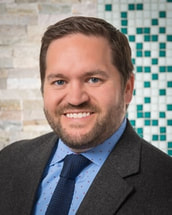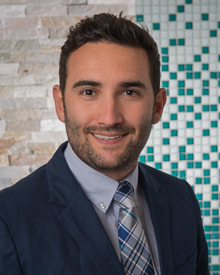Psychiatric assessments for children continue to have both extensive wait times and geographic disparities. In the state of Minnesota the only county according to the American Academy of Child Adolescent Psychiatry (AACAP) to have an adequate child psychiatrist to patient ratio is Olmstead, due to presence of the Mayo Clinic. Given these issues, the burden to initiate care often falls on the pediatrician or family practitioner regardless of the complexity of the situation. The goal of PAL is to provide support for these providers with immediate phone consultations at the moment they are needed.
The most common but also most difficult diagnostic patient is the irritable young child. The differential is extensive and includes learning disorders, social concerns, adverse childhood events, mental illness and medical considerations including absence seizures. A common question from primary care is, "can medications be used for treatment even if the differential outside of mental health cannot be exhausted?"
There is no simple approach, however the outline below is beneficial:
After clarification of the details above, there is often treatment modalities that are non-pharmacologic that are primary. This is includes recommendation for an IEP, an occupational therapy eval, in home skills, family/individual therapy, tutors, glasses, social skills groups etc. These are primary, but medication initiation, especially those that palliate severe agitation symptoms can be an effective adjunct treatment.
The goal is often to decrease agitation to the point that the above non-pharmacologic options can be started effectively rather than lead to further escalations. Hydroxyzine, clonidine and guanfacine often demonstrate benefit in the short term setting while the above treatments are initiated.
In addition to psychiatric consult services with PAL, there is also a triage therapist available to assist with non-medical questions, referrals and concerns. They are available to help find services throughout the state of MN.
You can contact PAL by calling 855-431-6468, pal@prairie-care.com, or scheduling online!
The most common but also most difficult diagnostic patient is the irritable young child. The differential is extensive and includes learning disorders, social concerns, adverse childhood events, mental illness and medical considerations including absence seizures. A common question from primary care is, "can medications be used for treatment even if the differential outside of mental health cannot be exhausted?"
There is no simple approach, however the outline below is beneficial:
- Do these concerns happen in all environments or just one? (School vs home; mother’s vs. father’s home; summer camp and home). Although the diagnostic criteria for ADHD requires two environments, this can be a helpful clarifying questions for all diagnoses.
- Is there a “Big T” or “Many little Ts?” Trauma comes in all sizes but the concern is the impact on the child. Stress hormones can be equally elevated at baseline in children who have had numerous small impactful trauma’s such as moves or bullying. Determining if trauma is present is an important first step.
- Is there a learning or developmental disability? While psychological testing is an important tool to clarify diagnosis, especially in children struggling with agitation in school, it is not readily available. Treatment can often not wait the three to six months for testing. Clarify reading level and feedback parents have heard from teachers.
- Does the child remind the parent of anyone? Often there is a similar pattern to parents that can be clarifying diagnostically.
After clarification of the details above, there is often treatment modalities that are non-pharmacologic that are primary. This is includes recommendation for an IEP, an occupational therapy eval, in home skills, family/individual therapy, tutors, glasses, social skills groups etc. These are primary, but medication initiation, especially those that palliate severe agitation symptoms can be an effective adjunct treatment.
The goal is often to decrease agitation to the point that the above non-pharmacologic options can be started effectively rather than lead to further escalations. Hydroxyzine, clonidine and guanfacine often demonstrate benefit in the short term setting while the above treatments are initiated.
In addition to psychiatric consult services with PAL, there is also a triage therapist available to assist with non-medical questions, referrals and concerns. They are available to help find services throughout the state of MN.
You can contact PAL by calling 855-431-6468, pal@prairie-care.com, or scheduling online!


